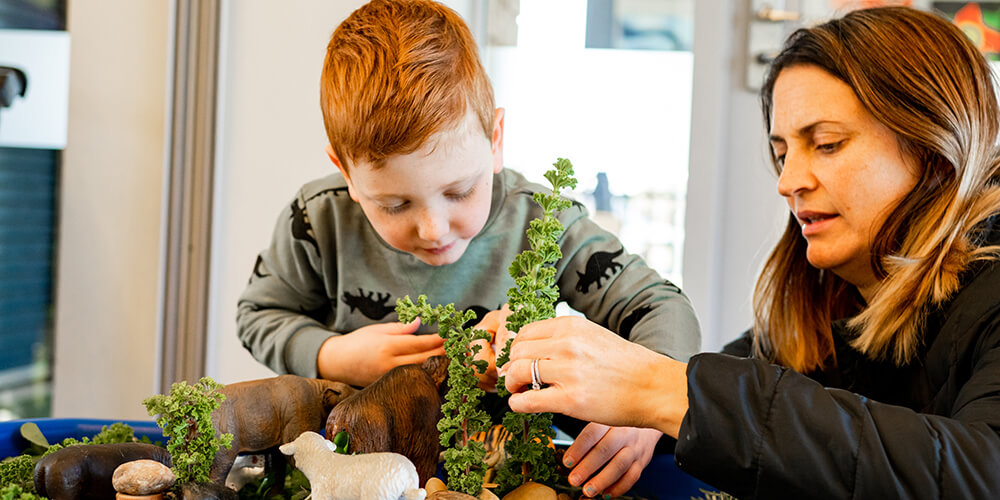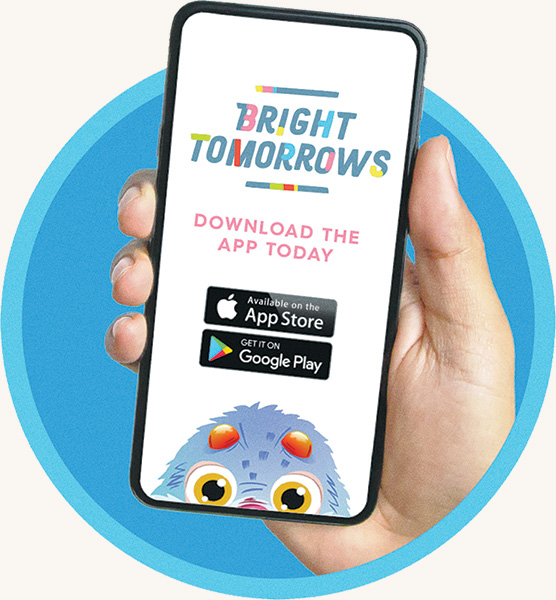
The ideas hub.
A child's brain is a remarkable little creature forming more than a million neural connections every second when activated. Babies learn through spending time with their parents and other special people in their life. Here are some ideas to help create meaningful moments with your child. These meaningful moments, especially if they occur early in a child’s life and often, build strong brains, providing a strong foundation for their life.
Download the Bright Tomorrows app today to receive access to over 1,000 meaningful moments and tips to help build young brains.







